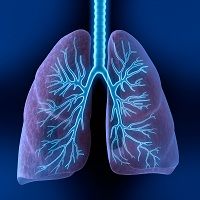Article
Study Explores Seasonal Changes Related to COPD Symptoms
Author(s):
The seasonality of exacerbations imposes a considerable burden on COPD patients in terms of mortality and morbidity, and on health care systems responsible for patient care.

Seasonal factors that trigger chronic obstructive pulmonary disease (COPD) symptoms, while not concretely identified, involve the increase of viruses present in cold temperatures, according to a study published in the International Journal of Chronic Obstructive Pulmonary Disease.
While factors causing COPD exacerbations have been widely explored, Imperial College London (ICL) researchers claimed seasonal factors affecting COPD haven’t been fully pinpointed.
To better understand the potential seasonal component of COPD symptoms, ICL researchers looked at several factors, specifically viral infection prevalence.
“In the north, 9% of patients had exacerbations between December and February compared to 5% in June to August. This translates into an 80% winter excess in exacerbations, whereas in the southern hemisphere, 12% of patients had exacerbations in their winter (June—August) compared to 7% in summer (December–February): a 71% winter excess,” the investigators explained.
While their analysis of previous research found an uncertain link between respiratory illness and temperature, investigators cited a previous study suggesting when a person breathes in cold air, it cools their nasal epithelium and negatively affects their respiratory defenses.
Furthermore, the investigators recommended vaccination for COPD patients. Despite its ineffectiveness against rhinoviruses, it works against influenza.
In addition to vaccines, they also pressed for vitamin D supplementation during the winter due to the lack of sunshine. According to a study cited by ICL researchers, low vitamin D levels have been associated with increased infections.
“The seasonality of exacerbations imposes a considerable burden on COPD patients in terms of mortality and morbidity, and on health care systems responsible for patient care,” the authors wrote. However, they claimed, “this seasonality can be reduced.”
With uncertainties still present involving COPD exacerbations, researchers recommended, “A specific area of research might be the use of seasonal treatment regimens where less anti-inflammatory medication is used in the summer when the patients have fewer respiratory symptoms and feel better, thus reducing side effects.”
2 Commerce Drive
Cranbury, NJ 08512
All rights reserved.


